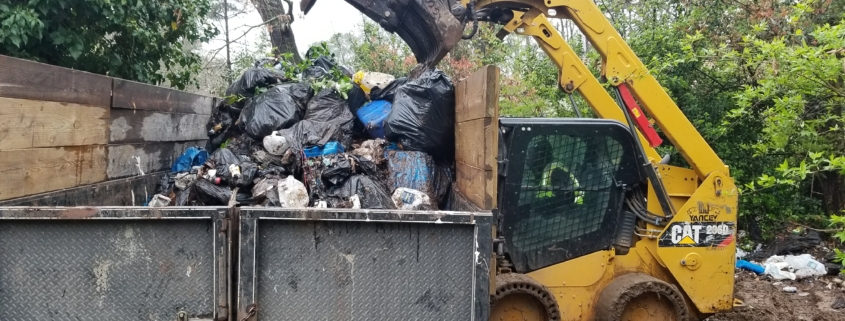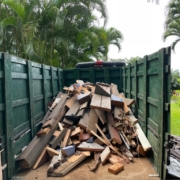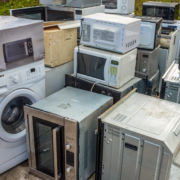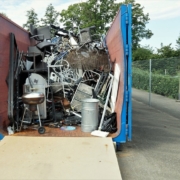How Does Junk Removal Benefit the Environment?
In our quest for a cleaner and greener planet, every small action counts. Junk removal might not be the first thing that comes to mind when we think about environmental conservation, but it plays a crucial role in reducing waste and promoting sustainability. Let’s explore how proper junk removal can benefit the environment and contribute to a healthier world.
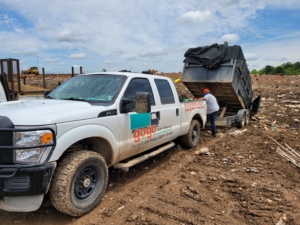
Reduces Landfill Waste
By removing and recycling unwanted items, junk removal services help decrease the amount of waste that ends up in landfills. This is crucial because overfilled landfills can cause various environmental issues, including soil and water contamination.
Landfills are not a sustainable solution for waste management as they can release harmful greenhouse gases into the atmosphere, exacerbating climate change. Junk removal that emphasizes recycling and proper waste management can significantly reduce these emissions and vast waste disposal problems, as highlighted in the discussion on The Environmental Impact Of Junk.
Consistent reductions in landfill waste contribute to better air quality and bottle up lesser pollutants that can leach into nearby water sources and habitats. Many communities are adopting innovative ways to manage waste more effectively, contributing to a more sustainable future.
Promotes Recycling and Reuse
Junk removal companies often sort through discarded items to identify materials that can be recycled or reused. This process not only extends the life cycle of everyday items but also reduces the need for new resources, conserving energy and minimizing pollution.
The act of recycling helps in saving raw materials and reducing energy consumption. For example, recycling metals like aluminum and steel can save up to 75% of the energy needed to create new products from raw materials. This not only conserves valuable resources but also supports efforts towards a circular economy.
Reusing items that would otherwise contribute to waste supports a regenerative cycle which is essential for curbing environmental degradation. This practice aligns with responsible disposal and sustainable waste management, ensuring that less is discarded and more is repurposed.
Lowers Pollution Levels
Proper disposal of hazardous materials, such as electronics or chemicals, is a significant aspect of junk removal. This prevents these harmful substances from leaching into the soil and waterways, thereby lowering the overall pollution levels in the environment.
Electronic waste or e-waste is an especially growing concern, as many such items contain toxic substances such as lead and mercury. The responsible handling of e-waste ensures these pollutants do not seep into ecosystems, highlighting the need for sustainable practices in managing technological waste.
Protects Wildlife and Natural Habitats
When waste is managed effectively, it reduces the risk of pollution that can be harmful to wildlife. Maintaining clean and natural environments ensures that local ecosystems remain balanced and supports biodiversity.
Waste that leaks into natural habitats could decimate local flora and fauna, disrupting well-established ecosystems. Through junk removal and conscientious waste management, we uphold the integrity of such environments and protect the species dwelling within.
By paying heed to the environment and implementing effective junk removal techniques, we not only preserve natural habitats but also ensure that current and future generations can enjoy and benefit from diverse ecosystems.
Embrace Junk Removal for a Sustainable Future
In conclusion, junk removal is more than just decluttering your home; it’s an essential part of creating a sustainable future. By reducing landfill waste, conserving resources, lowering pollution, and safeguarding wildlife, responsible junk removal practices help to protect and preserve the environment. Let’s embrace these practices and contribute to a cleaner, greener planet.

